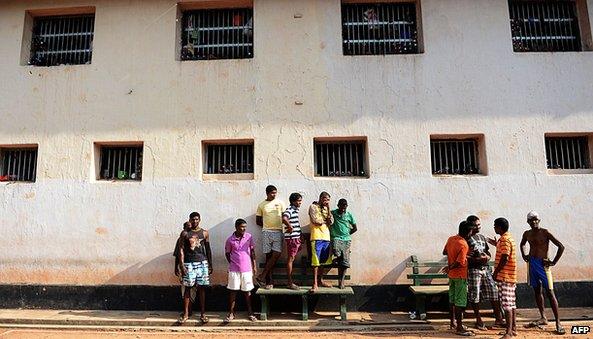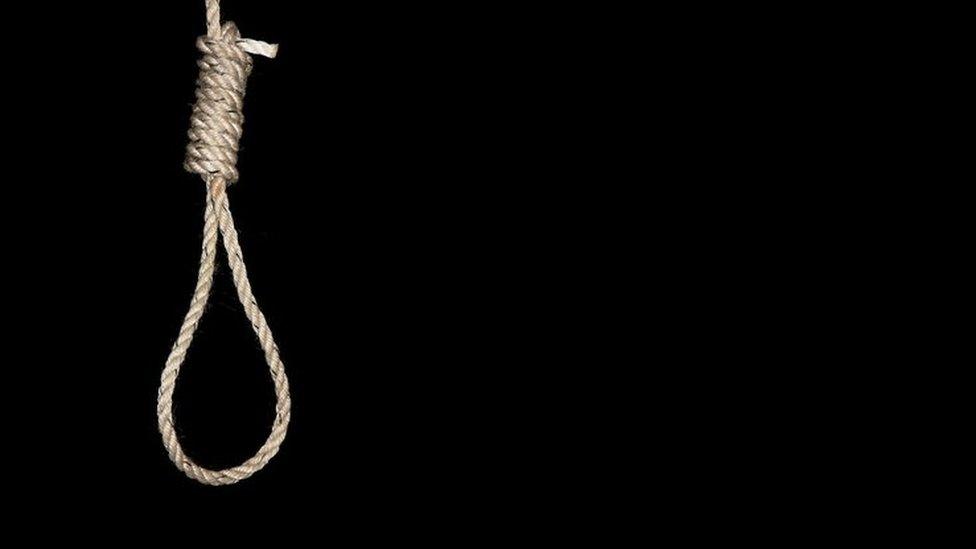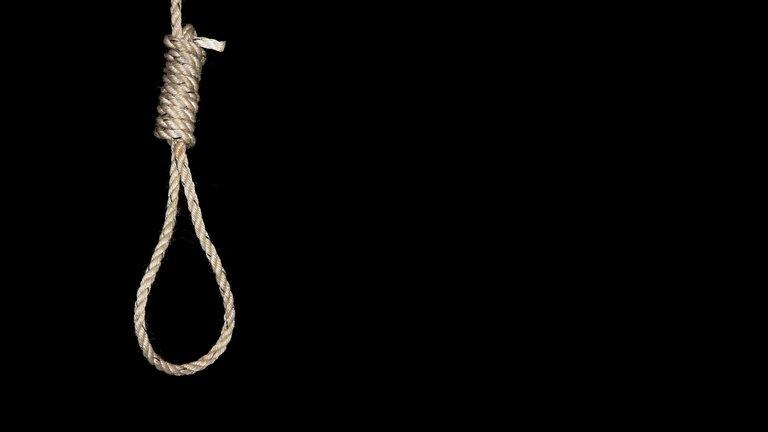Sri Lanka begins recruitment drive for 'moral' hangmen
- Published

Inmates at Colombo jail - nearly 1,300 prisoners are on death row in Sri Lanka
Sri Lanka has begun a search for two executioners with "strong moral character" as part of a crackdown on drug smuggling.
The job, advertised in the state-run Daily News paper, pays 36,310 rupees (£158; $203) a month.
Capital punishment is legal in Sri Lanka but no executions have taken place since 1976.
The country has struggled to find a permanent executioner after its last hangman resigned five years ago.
The dedicated role is open to any Sri Lankan males aged 18-45 who possess "mental strength."
The last hangman resigned in 2014 after seeing the gallows for the first time and going into shock. Another was hired last year but never turned up for work.
Sri Lanka has nearly 1,300 people currently on death row, 48 for drug-related offences.
The country's constitution recognises the freedom of individuals to engage in "any lawful occupation, profession, trade, business or enterprise".
Since 2004 rape, drug trafficking and murder have been considered capital crimes but punishments have only extended to life imprisonment.

Sri Lanka has struggled to find a hangman since its one of its recruits resigned in 2014, going into shock after being shown the gallows for the first time.
On 7 February, President Maithripala Sirisena told parliament that he would authorise the death penalty "within the next two months" for those jailed on drugs charges.
During a visit to the Philippines in January, President Sirisena praised President Rodrigo Duterte, for his campaign against drugs, calling it "an example to the world."
More than 5,000 drug dealers or users have been killed, according to Filipino police, since Mr Duterte launched his anti-narcotics campaign in 2016.
President Sirisena announced in July 2018 that hangings would resume for drug offenders, citing a rise in arrests for drugs offences in the country.
Sri Lanka's Prime Minister Ranil Wickremasinghe has criticised the move.
According to the National Dangerous Drugs Control Board (NDDCB), drug-related arrests have risen steadily since 2013.
Cannabis and heroin are the most widely-used drugs in Sri Lanka, and authorities have expressed concerns that the island nation could become a major transit point for traffickers in Asia.
Police have arrested more than 50 people on trafficking charges since the middle of last year.
- Published12 March 2014
